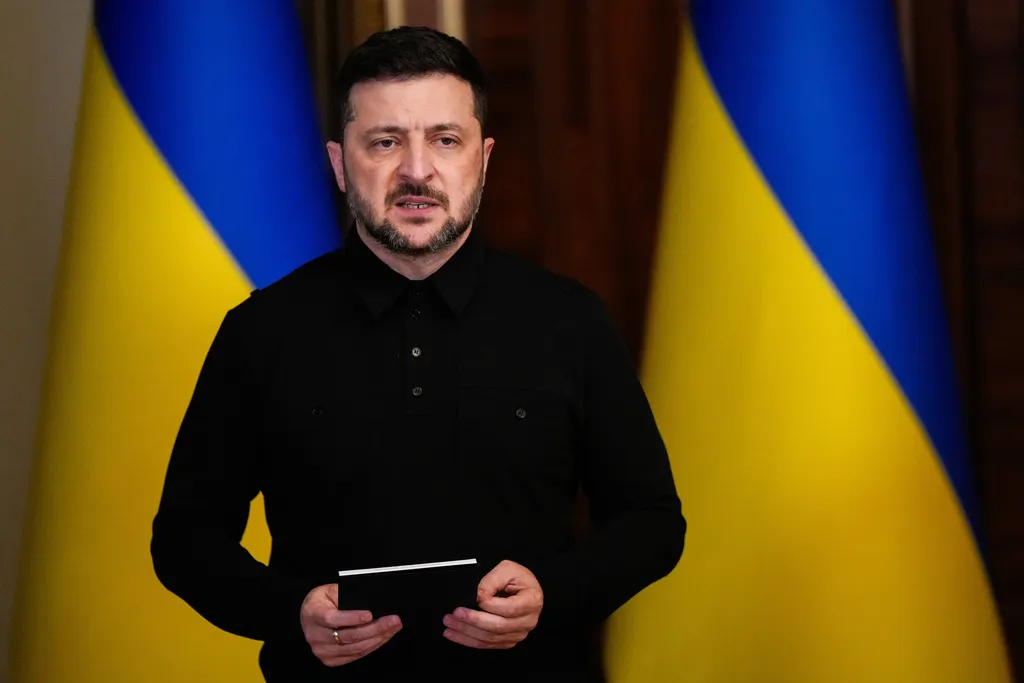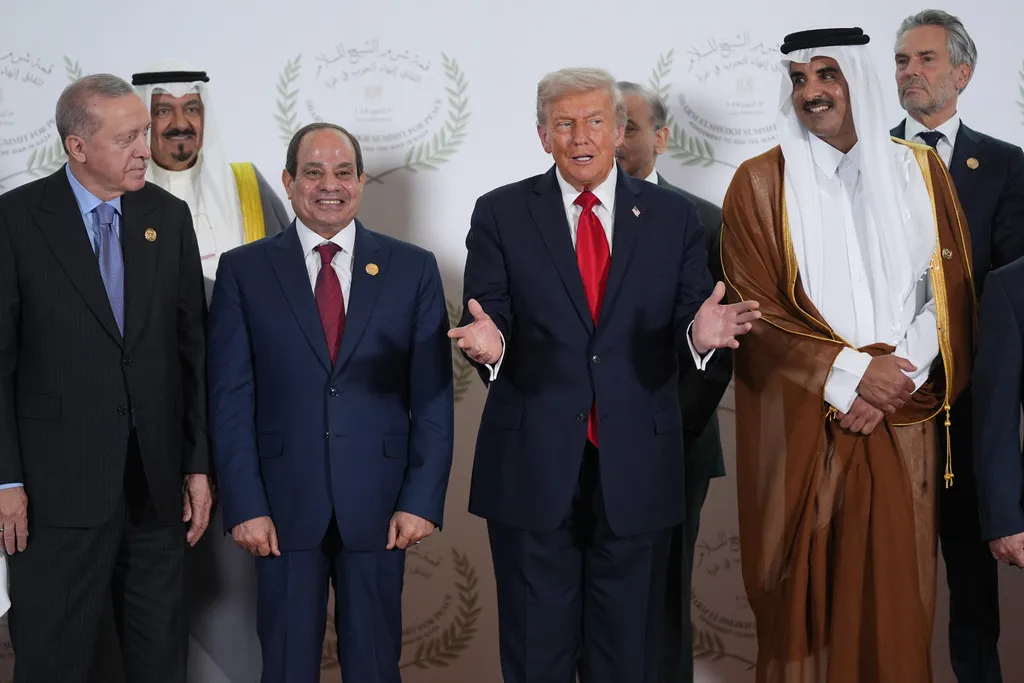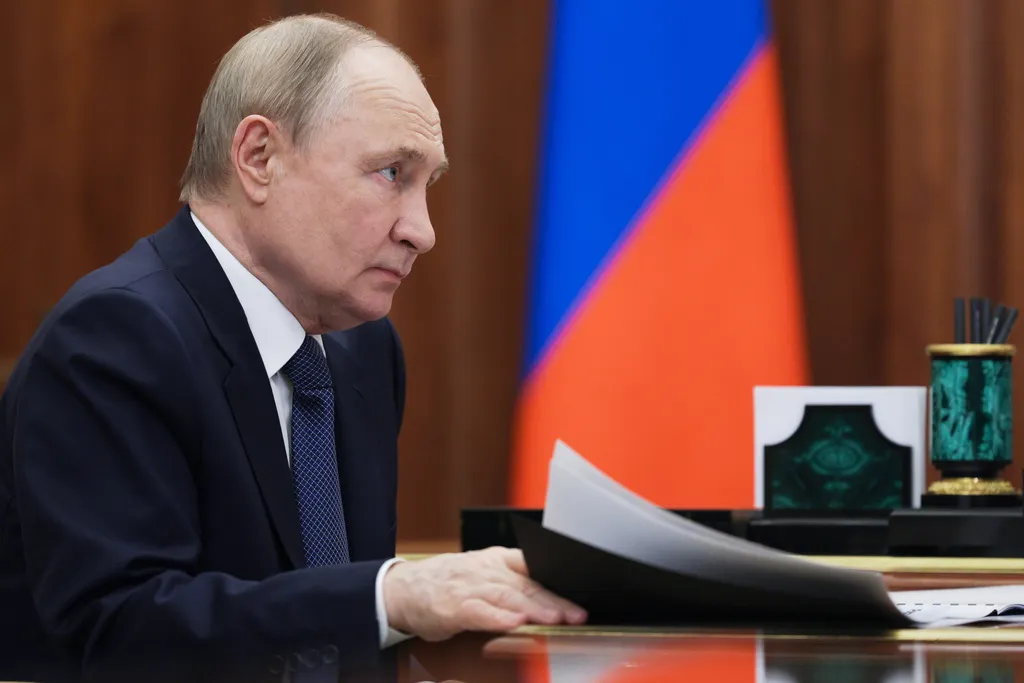President Donald Trump cannot be accused of resting on his laurels, and Ukraine is hoping to ride his momentum to its own ceasefire agreement.
Following a celebratory address at the Knesset and stopover in Egypt to kickstart the formation of an international “Board of Peace” to govern the Gaza Strip, Trump is already shifting his focus to what he has called the “most difficult” conflict to end.
On Monday, Ukrainian President Volodymyr Zelensky received an “official invitation” to meet at the White House, his third meeting with Trump. He has dispatched a delegation ahead of him, members of which are already on their way to the United States to “hold a number of meetings” on ending the Russian invasion.
“I will also have the opportunity to come to Washington and meet with President Trump on Friday,” the Ukrainian leader announced Monday afternoon. “I believe we will discuss a series of steps that I intend to propose.”

“I am grateful to President Trump for our dialogue and his support,” he added.
Ukrainian advocates see the country as a fellow traveler of Israel, a nation at risk of being swallowed up by larger surrounding powers that outnumber it, and they are taking notes about what worked.
“Ukrainians were moved not just by the fact that peace, or at least a ceasefire, has been reached in the Middle East, but they are paying close attention to exactly how the president managed to achieve something that certainly his predecessor did not,” Daniel Balson, the director of public engagement at Razom for Ukraine, told the Washington Examiner.
One key lesson, Balson said, is that Trump is not the pure isolationist some believed him to be, having leveraged American allies abroad to help seal the deal where the U.S. could not do it alone.
“There’s been a lot of discussion about whether ‘America first’ means ‘America alone,’” Balson said. “I think that discussion has been put to rest throughout the president’s diplomacy.”
Ukrainians are hoping that Trump will take the initiative to flood their borders with weapons and make Kyiv too costly a prize. This would likely be through the weapons-purchasing infrastructure that Trump set up with European allies.
Ukrainians also see strong parallels between the Israeli hostages taken by Hamas and the mass kidnapping and re-education of Ukrainian children by invading Russian forces.
First lady Melania Trump has made the return of kidnapped Ukrainian children preeminent among her humanitarian causes.

“I think a lot of the credit must go to the hostage families in Israel,” Balson told the Washington Examiner. “They have campaigned tirelessly. They understood something about President Trump that I think a lot of people don’t: it’s that individual and specific human stories capture his attention. Their play genuinely resonated with the president. The way they approached their suffering with dignity and strength resonated with the president.”
This week’s preliminary delegation includes some of Ukraine’s highest-ranking officials, including Prime Minister Yuliia Svyrydenko, Head of the Presidential Office Andriy Yermak, and Secretary of the National Security and Defense Council Rustem Umerov.
Following the White House, Zelensky intends to meet with congressional lawmakers and third parties, such as defense and energy companies.
“This is necessary — it was President Trump’s proposal — and I will meet with these companies because there are pressing needs linked to various formats of attacks, not even the attacks that Russia has already carried out,” the Ukrainian leader said. “In any case, we must be prepared. So, it will be helpful. Therefore, the main focus of the visit is air defense and our long-range capabilities aimed at exerting pressure on Russia for the sake of peace.”
Those long-range capabilities are Tomahawk missiles — a U.S.-manufactured weapon that would be capable of striking deep inside Russian territory.
Former President Joe Biden’s administration refused to supply Tomahawks to Ukraine out of fear that it would drag the U.S. into the war. Trump maintained this ban at first but has been warming to the idea as his frustration with Russian President Vladimir Putin grows.

“I might have to speak to Russia about Tomahawks,” Trump said Sunday aboard Air Force One. “Do they want to have Tomahawks going in their direction? I don’t think so. I told that to President Zelensky, because Tomahawks are a new step of aggression.”
“I might talk to [Putin],” he continued. “I might say, ‘Look, if this war is not going to get settled, I may send them Tomahawks.’ Russia doesn’t need that. I think it is appropriate to bring that up.”
The Russian government has become increasingly incensed by Trump’s flirting with the idea of furnishing Tomahawks to Ukraine. Initially waving off the idea as unfeasible, the rhetoric from Russian officials has grown increasingly hostile and threatening.
The Kremlin asserts that the use of Tomahawks in the conflict would necessitate direct assistance from the U.S. military, declaring that such cooperation would be an act of war.
ZELENSKY URGES ‘NO WEAKENING OF PRESSURE’ AS RUSSIA STRIKES UKRAINIAN ENERGY PLANTS
“The delivery of these cruise missiles could end badly for everyone, and especially for Trump himself,” former Russian President Dmitry Medvedev warned on Monday.
Medvedev’s remarks were affirmed later in the day by Kremlin spokesman Dmitry Peskov, who noted that “anyone with even a basic understanding of the issue knows that American experts would be involved in the handling of such missiles.”
